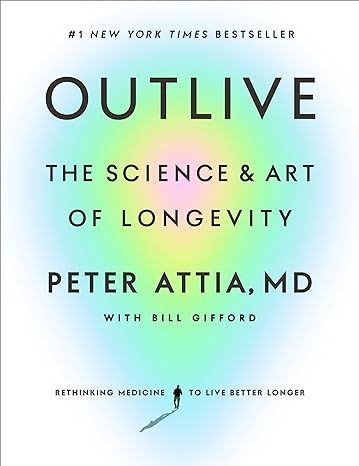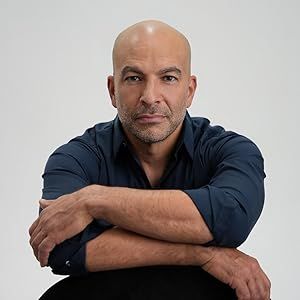Outlive: The Science and Art of Longevity
4.6
-
14,034 ratings
#1 NEW YORK TIMES BESTSELLER • OVER ONE MILLION COPIES SOLD • A groundbreaking manifesto on living better and longer that challenges the conventional medical thinking on aging and reveals a new approach to preventing chronic disease and extending long-term health, from a visionary physician and leading longevity expert
“One of the most important books you’ll ever read.”—Steven D. Levitt, New York Times bestselling author of Freakonomics
AN ECONOMIST AND BLOOMBERG BEST BOOK OF THE YEAR
Wouldn’t you like to live longer? And better? In this operating manual for longevity, Dr. Peter Attia draws on the latest science to deliver innovative nutritional interventions, techniques for optimizing exercise and sleep, and tools for addressing emotional and mental health.
For all its successes, mainstream medicine has failed to make much progress against the diseases of aging that kill most people: heart disease, cancer, Alzheimer’s disease, and type 2 diabetes. Too often, it intervenes with treatments too late to help, prolonging lifespan at the expense of healthspan, or quality of life. Dr. Attia believes we must replace this outdated framework with a personalized, proactive strategy for longevity, one where we take action now, rather than waiting.
This is not “biohacking,” it’s science: a well-founded strategic and tactical approach to extending lifespan while also improving our physical, cognitive, and emotional health. Dr. Attia’s aim is less to tell you what to do and more to help you learn how to think about long-term health, in order to create the best plan for you as an individual. In Outlive, readers will discover:
- Why the cholesterol test at your annual physical doesn’t tell you enough about your actual risk of dying from a heart attack.
- That you may already suffer from an extremely common yet underdiagnosed liver condition that could be a precursor to the chronic diseases of aging.
- Why exercise is the most potent pro-longevity “drug”—and how to begin training for the “Centenarian Decathlon.”
- Why you should forget about diets, and focus instead on nutritional biochemistry, using technology and data to personalize your eating pattern.
- Why striving for physical health and longevity, but ignoring emotional health, could be the ultimate curse of all.
Aging and longevity are far more malleable than we think; our fate is not set in stone. With the right roadmap, you can plot a different path for your life, one that lets you outlive your genes to make each decade better than the one before.
Kindle
$14.99
Available instantly
Audiobook
$0.00
with membership trial
Hardcover
$19.54
Paperback
$21.99
Ships from
Amazon.com
Payment
Secure transaction
ISBN-10
0593236599
ISBN-13
978-0593236598
Print length
496 pages
Language
English
Publisher
Harmony
Publication date
March 27, 2023
Dimensions
7.29 x 1.57 x 9.3 inches
Item weight
1.63 pounds
Popular Highlights in this book
Risk is not something to be avoided at all costs; rather, it’s something we need to understand, analyze, and work with.
Highlighted by 1,725 Kindle readers
One macronutrient, in particular, demands more of our attention than most people realize: not carbs, not fat, but protein becomes critically important as we age.
Highlighted by 1,654 Kindle readers
First, Medicine 3.0 places a far greater emphasis on prevention than treatment.
Highlighted by 943 Kindle readers
Product details
ASIN :
B0B1BTJLJN
File size :
11867 KB
Text-to-speech :
Enabled
Screen reader :
Supported
Enhanced typesetting :
Enabled
X-Ray :
Enabled
Word wise :
Enabled
Editorial Reviews
“Outlive completely transformed my approach to growing old. Peter Attia is among the most brilliant people I’ve ever met, and he’s succeeded in packing a life’s worth of insights into this book. It promises to be one of the most important books you’ll ever read.”—Steven D. Levitt, New York Times bestselling author of Freakonomics
“In Outlive, Peter Attia explores the science of not just prolonging life, but also prolonging aliveness. Attia makes the crucial connection between overall health and relational health.”—Esther Perel, New York Times bestselling author, psychotherapist, and podcast host of Where Should We Begin?
“Finally, there is a modern, thorough, clear, and actionable manual for how to maximize our immediate and long-term health. Firmly grounded in data and real-life conditions, Outlive makes obvious which actions we all need to take, and just as important, what all we need to pay attention to in order to live a long, vital life. As the most accurate and comprehensive health guide published to date, Outlive is not just informative, it is important.”—Andrew Huberman, PhD, professor, Department of Neurobiology at Stanford University School of Medicine, creator of the Huberman Lab podcast
“Dr. Peter Attia is my doctor and also my friend. He is a specialist in longevity and someone I trust with my life. What separates him from others is his pursuit of quality of life from all angles—physical, emotional, mental, relational, and spiritual health. This incredible book is a call to action and a reminder to always participate, and never be passive. It will arm you with the tools you need to live a long, meaningful, and fulfilling life.”—Hugh Jackman
“In Outlive, Peter Attia has delivered the definitive look at the complex subject of longevity. Comprehensive and rigorous, Outlive is full of surprising insights into the diseases of aging that will likely kill most of us, and the tactics and techniques that can help us live longer and in better health. Attia’s writing surprises and delights us, while provoking a new way to think about longevity.”—Siddhartha Mukherjee, author of the Pulitzer Prize winner The Emperor of All Maladies and the New York Times bestseller The Song of the Cell
About the authors
Peter Attia MD
Peter Attia, MD, is the founder of Early Medical. He received his medical degree from the Stanford University School of Medicine and trained at the Johns Hopkins Hospital in general surgery. He also trained at the NIH as a surgical oncology fellow at the National Cancer Institute, where his research focused on immune-based therapies for melanoma. He serves on the editorial board for the journal Aging. He is the host of The Drive, one of the most popular podcasts covering the topics of health, medicine, and longevity.
Read more
Reviews
Customer reviews
4.6 out of 5
14,034 global ratings
Latif Hamed
5
Attia does nothing half-way: amazing!
Reviewed in the United States on April 10, 2023
Verified Purchase
I normally don’t write product reviews but after I read the few one- and two-star reviews describing the book as fluff I could not control my fingers! What?? Are you kidding me? To paraphrase senator Lloyd Bentsen, I know “fluff” and my friends this book is no fluff. Rather, to say that this amazing book is by far and away at the top of its genre is an understatement. I write this as I embark on a second reading of “Outlive”, having read it once almost in one setting, skipping a couple of exercise sessions no less. Attia clearly possesses the intellect, integrity, wit, vigor, candor, and God knows what else that went into the making of this amazing mind and person. Everyone will experience the book from his special angle, based on background and knowledge, but no one will leave empty handed. As an eye surgeon, professor, and author of several books myself, I can say that I so thoroughly enjoyed this book and will be sharing it with my friends and family and recommending it to patients and colleagues. Attia’s content is a favorite discussion topic with my children: podcast, emails, and finally the book, and sometimes my son or daughter would wonder aloud “what do you think is Attia’s position on this?”. So what if I, as a moslem, will be “adding” a final chapter to the book, so as to discuss it within my circle, that imparts a transcendental framework to our quest for a long life beyond the raising of a strong healthy physical horse. If you believe that your existence totally ends with death, it makes perfect sense to embark on a quest to lengthen your life, beyond which there is nothing. But if you belief as I do that there is an eternal component to our essence that continues beyond the entombment of our bodies, then your horizon and end point is limitless. Is the martyr who died defending his people and his family against oppression and tyranny at age 20, achieving a dismal Attia-style longevity, a loser, a tragic figure who fell victim to unfortunate conflicts, or is he worth a thousand longevity-focused horses? To exclusively pamper the animal (body) and ignore the horseman (soul) is to put the cart before the horse. In addition, to preach that we should persevere in trying to lengthen life a few more years, and spend a whole lifetime doing it, strikes me as wasting your life in order to lengthen it. My advice to friends and family is this: Go ahead and double click on exercise and nutrition; huff and buff to raise your VO2 max, and be stable with firm resolve as you prioritize DNS. But do bear in mind that you are making the horse strong to serve the horseman, and not the other way around. We are not mere shells: eat, move, sleep, copulate, repeat. Get yourself a more spacious framework. Be in control as your phosphorylated spirit commandeer the horse so that the both of you can stand, marsh, live, and die with nobility and honor. “Outliving” to me is a transcendent term, to outdo and go beyond the bounds of your biological carbon-based body, to achieve escape velocity through a noble righteous life on Earth that propels your soul to heaven when biology fails you, so as to justify the reason that God commanded the angels to bow to Adam. Of course, this is not a book about religion, and of course we agree less on religion than we do nutrition, and of course moslems are a zealot punch (attempt at self-deprecating humor), and of course as a physician I would love to read the 2000 page version (sorry, Penguin Random House). But from my perspective this is a beautifully written book by an author that I and my kids grew to love and admire, one who does not do anything half-way. Read it and reread it but put the material to practice by moving a good amount in between reading spurts.
Read more
191 people found this helpful
SJR
5
Great Take Away Points
Reviewed in the United States on April 7, 2024
Verified Purchase
I first learned about Dr. Attia through watching the series 'Limitless.' I found the series to be extremely inspiring, and ultimately life-changing. I then stumbled across a Youtube clip where someone was discussing this book, which led to my purchase of it. It is a very thick book with which I took my time reading, in chunks. (I did not read the last two sections on sleep and emotional health).
I read through some of the 1 and 2 star reviews on Goodreads. Many mentioned that the book could be significantly shorter and that they did not like all of the personal stories that Dr. Attia shared. However, I found each of the stories to be quite helpful in putting the information into context. And I think the overall intent of this book was/is two-fold. It was not only written to present 'information,' but also Dr. Attia's personal testament of his journey as he learned new things, changed his perspectives, struggles in life, etc. The addition of this deeply intimate information helps to make the book more personable versus cold and mechanic. And who knows, writing this book may have also provided Dr. Attia with some degree of inner peace and resolution. What is so wrong with that?
There are many focal points of this book, but for this book review, I will address what I find to be key take away points, and my perspective of those points discussed by Dr. Attia.
READABIITY: Some parts of the book could be difficult for people to understand if they do not have a medical background, fortunately I do. For those who do not, and really want to understand, have Internet access handy so that you can cross-reference between the Internet and the book as you go along. NOTE: There are many parts of the book where animal research studies are discussed. I must preface that I struggle reading about animal studies, as I am anti-animal testing activist. But I do understand why the studies are mentioned in the book.
PHILOSOPHY: Dr. Attia makes several comparisons between Medicine 2.0 and Medicine 3.0. I think many Primary Care providers who read and subsequently reviewed this book may have felt offended by Dr. Attia's views on what he describes as our current healthcare model (Medicine 2.0). However, Dr. Attia is not pointing fingers and intending to insult Primary Care providers. He is simply pointing out flaws in our current healthcare model and how it should shift to a different focus, which I 100% agree with!
For those who chose to be insulted by this, shame on you. If you are a Primary Care provider, it is also not your fault that your practice is based upon Medicine 2.0, as you have to operate within the restrictive system and in accordance with insurance coverage. Embrace the Medicine 3.0 philosophy and save it for the day when, perhaps, our current healthcare model will shift closer to it. Everyone will be better off for it.
PREVENTATIVE TESTS: I found it odd when a reviewer mentioned that they know many adults who lived to old ages without any fancy tests. That is a strange thing to write, because Dr. Attia does NOT imply that having a bunch of tests contributes to living longer or healthier. Conversely, he implies that having preventative tests provides knowledge of one's current health state. That knowledge can then enable people to make changes that can contribute to living longer and healthier versus being a ticking time bomb and continuing on the same physiological path. How that reviewer misconstrued these two vastly different concepts is beyond me. This reviewer continued on to say that these seniors also smoked, drank, ate what they wanted, etc. However, I cannot help but wonder about their quality of life, and whether they were active and enjoy(ed) pursing hobbies/interests OR if they were simply 'existing' as couch potatoes. These are two vastly different concepts, and is the focal point that Dr. Attia expresses throughout the book.
On another note, Dr. Attia describes the perfect world where everyone has access to a plethora of preventative tests. Many of these preventative tests (scans, blood, etc.) are not covered by typical insurance plans, which means people have to pay out of pocket for them. I do plan to have most of the screening tests done that he recommends, because I want that in-depth knowledge of my current health state. However, doing all of these are just out of reach for many, or until patients reach a certain age (DEXA scan, for example).
MACRO NUTRITION: As many others mentioned, I do not think that any new/novel information about macro nutrition was presented. Some reviewers got the impression that Dr. Attia is pro-Keto diet. But I did not infer that at all. Conversely, I thought Dr. Attia did a great job with pointing out key advantages and disadvantages of many different types of diets, not just Keto. And I think he made it quite clear that no one type of nutrition regimen/approach is going to work for everyone. This point was made quite clear when he discussed his friend/patient (the Lipidologist) who benefited from a fasting regimen. I also think he did a good job explaining how different macro nutrients affect the body in an easy to understand fashion. I particularly found the information about Fructose and Purine quite interesting.
EXERCISE: It was made abundantly clear that Dr. Attia believes that exercise is the foundation for good health, which I agree with! He describes, in detail, how exercise is the best preventative tool for the "Horsemen." Yes, it makes good sense: Exercise = improved blood flow = improved perfusion AND = building and/or maintenance of muscle tissue and maintenance of bone = potential reduced risk for the "Horseman." But in reality, is it really THAT simple? I do not think so. There are so many other factors that come into play.
Additionally, what is disheartening, and what other reviewers found discouraging about this, is how complex Dr. Attia makes exercise out to be. While I agree with the benefits of all the different types of exercises he discusses, I also think it is unrealistic for many people to achieve all of it in it's entirety. Again, it comes back to the perfect world where there are no life-stressors, no major time consuming life-demands, not having to work a full-time job, etc.
For example, let's talk about a rich celebrity who is one of Dr, Attia's patients: Chris Hemsworth. I am not criticizing or picking on Mr. Hemsworth. Below is just a great example that helps my point hit home here.
Does he work a 40-hour week desk job, staring at a computer all day? No. Is he on his feet all day working at a store helping customers? No. Does he come home from that job, after a commute, and have to try to squeeze in a workout? No.
Does he have personal trainers and nutritional coaches? Yes. Does he have plenty of time most days to exercise and enjoy leisurely activities? Yes. Is his job as an actor focused on being physically fit? Yes. Is he able to wake up naturally most days instead of being blasted awake by an alarm clock? Yes. Does he have plenty of income to not have to worry about paying the bills? Yes.
This is the perfect world that Dr. Attia describes. Not everyone has enough time in the day to devote to exercising like Dr. Attia believes is necessary. I am a poly-outdoorsman, and I am an endurance (non-professional) athlete. I would love nothing more than to have the amazing opportunity to devote as much time as I want to exercise and my outdoor sports versus working a full-time job. However, that is not my reality despite how much I would like it to be.
For most people who live in the real world, doing some exercise each day/week just has to be enough because that's all they can do. So to even remotely imply that that amount just isn't enough to obtain a long, healthy lifespan is quite sad. This is where the notion of 'weekend warriors' comes into play. For some, weekends are the only time that people have to exercise and/or recreate in the outdoors. This pattern does not align with Dr Attia's ideology, but doing something on the weekends is better than doing nothing at all.
What I do think readers can benefit and take away from this section of the book is to, perhaps, incorporate different exercises into their daily/weekly regimen that they may not have thought of. This is key! For myself, I have now incorporated new things into my exercise regimen because I have a better understanding of how they can have a long-term impact.
FINAL THOUGHTS: This is not a concrete book of science. It is a book that discusses some scientific information combined with Dr. Attia's life-experiences. I think it is a well-rounded book because of this. Take whatever information you found useful and run with it! Be as active as you possibly can each day/week, keep your body trim, and feed it with good nutrition. For us "Commoners," that is the best we can do.
Read more
66 people found this helpful
Thomas Kelso
5
Medicine 3.0 is coming and Peter Attia leads the charge
Reviewed in the United States on April 22, 2023
Verified Purchase
This book is fantastic. Anyone with an interest in learning how to live a healthier, longer life should buy a copy and study it. That’s what I did. After reading it I ordered a second copy and gave it to my primary care physician because I wanted him to know where I was coming from in terms of being a patient and how I want to live my life. Outlive, is a goldmine of healthcare information.
I became aware of Peter Attia about five years ago when a friend suggested I listen to an episode of The Drive. For those who are unfamiliar with Attia, this is his weekly podcast. After listening to it I was hooked and immediately became a subscriber and began listening to archived episodes. I spend a lot of time commuting and to date I’ve probably listened to two-thirds of the interviews and the Ask Me Anything discussions. So when I received the notification that his long-awaited book was finally going to be published I preordered my copy. Once it arrived I got out my pen and highlighter and went to work.
I believe I can speak from a position of strength when it comes to commenting on this book. I have walked a similar career path. Like Attia, I’ve been trained in basic science research. I earned a PhD under the mentorship of the great Philip Gollnick, PhD, one of the pioneers of modern exercise science. Similar to Attia, I’ve also been trained in medicine and surgery having completed a medical degree and a surgical residency in orthopedics.
Attia is a voice in the wilderness shouting the message of Medicine 3.0, a philosophy based on the guiding principles of preventing the onset of chronic disease. He defines the time from birth to the onset of chronic disease as healthspan. The period of time from birth to death is lifespan. The goal of Medicine 3.0 is to increase healthspan so that it encompasses most, if not all, of lifespan. Medicine 3.0 is proactive whereas Medicine 2.0 (where we are now) is reactive. Medicine 2.0 begins treatment of an illness or disease only after it has been diagnosed, after the damage has begun. Medicine 3.0 is based on preventing, or delaying, the onset of disease or illness so that treatment is avoided.
How does Attia recommend we go about maximizing healthspan? He believes this can be accomplished by focusing on doing everything possible to prevent what he terms, the four horsemen: metabolic syndrome (type-2 diabetes), cardiovascular disease, cancer, and neurodegenerative diseases (Alzheimer’s, Parkinson’s, etc.). The book is broken up into sections devoted to each of the horsemen. A final section, where Attia opens up and presents some of his personal journey, is devoted to emotional health. The importance of this section cannot be overstated. Emotional health probably should be considered the fifth horseman (but that would wreck the Four Horsemen of the Apocalypse metaphor).
He focuses on ways to prevent cognitive decline, the slowing of our mental processing speed as we age. An emphasis is placed on exercise, aerobic and strength training, as an intervention. Exercise increases cardiovascular and respiratory function and decreases the loss of muscle size and strength. It also increases bone density and deceases osteopenia and osteoporosis. In short, regular exercise reduces frailty. As frailty increases our risk of mortality increases. He makes the claim that the single most important thing anyone can do to improve healthspan is to exercise on a regular basis. It is better than any drug you can take (with the possible exception of rapamycin), nutrient, or diet.
Attia and his co-author Bill Gifford tone down the technical aspects of some of the medical topics to make it more accessible to a lay audience. However, this does not detract from the quality of the information. If anything it makes the book better by reaching a broader audience. If a reader wants more detailed information on a topic they can easily obtain it by culling through the archives of The Drive where in depth interviews with preeminent physicians and scientists are available. He employs a team of highly skilled analysts that are constantly reading the latest scientific publications looking for high-quality research pertinent to his mission. He is at the forefront of Medicine 3.0.
If you want to learn more about your physical and emotional health with the goal of living better and longer then read Outlive, the Science & Art of Longevity.
Read more
324 people found this helpful
G. C. Carter
5
Wonderful mix of facts, sound medical advice, anecdotes and opinions for living a long healthy life
Reviewed in the United States on August 2, 2023
Verified Purchase
This 2023 book “Outlive: The Science and Art of Longevity” by Peter Attia, M.D. (with acknowledged contributions by others including Bill Gifford) is a wonderful mix of facts, medical advice, personal and family anecdotes and opinions for living a long life that you, your friends, relatives, and medical professionals will enjoy. One main recommendation is to exercise regularly (in specific ways) while avoiding injury. He recommends particular medical tests. The book is worth purchasing and reading to understand how to live a longer healthier life. As an example of the substance and style of this book, Attia writes: “The information and advice presented in this book are not meant to substitute for the advice of your family’s physician or other trained healthcare professionals. You are advised to consult with healthcare professionals with regard to all matters pertaining to you and your family’s health and well-being.” Attia writes: “as a surgical resident at Johns Hopkins, I would learn that death comes at two speeds: fast and slow… Ultimately… slow deaths ended up bothering me even more. But this is not a book about death… [but about] longevity… Longevity does not… mean merely notching more and more birthdays as we slowly wither away… In 1900, life expectancy hovered somewhere south of age fifty, and most people were likely to die from “fast” causes: accidents, injuries, and infectious diseases… the odds are overwhelming that you will die as a result of one of the chronic diseases of aging that I call the Four Horsemen: heart disease, cancer, neurodegenerative disease, or type 2 diabetes and related metabolic dysfunction… Longevity has two components. how long you live… [and] the quality of your years… called healthspan… defined as the period of life when we are free from disability or disease… Death rates from cancer, on the other hand, have hardly budged in the more than fifty years since the War on Cancer was declared, despite hundreds of billions of dollars’ worth of… spending on research. Type 2 diabetes remains a raging public health crisis, showing no sign of abating, and Alzheimer’s disease and related neurodegenerative diseases stalk our growing elderly population… None of our treatments for late-stage lung cancer has reduced mortality by nearly as much as the worldwide reduction in smoking that has occurred over the last two decades, thanks in part to widespread smoking bans. This simple preventive measure (not smoking) has saved more lives than any late-stage intervention that medicine has devised… Medicine’s biggest failing is [treating] all these conditions… after they are entrenched—rather than before they take root.” Attia writes: “The metabolic derangement that leads to type 2 diabetes also helps foster and promote heart disease, cancer, and Alzheimer’s disease… all “diets” are similar… protein becomes critically important as we age… Exercise is by far the most potent longevity “drug.” No other intervention does nearly as much to prolong our lifespan and preserve our cognitive and physical function. But most… don’t do nearly enough—and exercising the wrong way can do as much harm as good…” Attia writes: “there have been two distinct eras in medical history, and [we are] on the verge of a third… Hippocrates’s major contribution was the insight that diseases are caused by nature and not by… the gods… Medicine 2.0 arrived in the mid-nineteenth century with the advent of the germ theory of disease... [and] eradicated deadly diseases such as polio and smallpox… Yet Medicine 2.0 has proved far less successful against long-term diseases such as cancer… lifespans have nearly doubled since the late 1800s, [almost] entirely from antibiotics and improved sanitation... if you subtract out deaths from the eight top infectious diseases… overall mortality rates declined relatively little over the course of the twentieth century… [The goal of] Medicine 3.0—is… to be thriving… throughout the latter half of our lives… Lifespan… is binary: you’re alive, and then you’re dead. It’s final. But before that happens… most people suffer through a period of decline that… is like dying in slow motion… while actual death is inevitable, this deterioration… is less so… If you increase your muscle strength and improve your cardiorespiratory fitness, you have also reduced your risk of dying…” Attia writes: “[Exercise] components [are]: strength, stability, aerobic efficiency, and peak aerobic capacity. We want to maintain physical strength, stamina, stability across a broad range of movements, while remaining free from pain and disability… exercise [is] the most potent longevity “drug” in our arsenal, in terms of lifespan and healthspan. The data are unambiguous: exercise not only delays actual death but also prevents both cognitive and physical decline, better than any other intervention…” Attia writes: “data comes from studies of… people who have lived to the age of one hundred and beyond, often in good health… many of them get to enjoy one, or two, or even three Bonus Decades…. Researchers… [found that] individuals [had] very little in common with one another genetically… Natural selection has endowed us with genes that work beautifully to help us develop, reproduce, and then raise our offspring [but] after the age of reproduction, natural selection loses much of its force… [Yet] a handful of potential longevity genes… are possibly relevant to our strategy. One [gene]… called … APOE (apolipoprotein E) that is involved in cholesterol transport and processing, and it has three variants: e2, e3, and e4… The e2 variant of APOE… seems to protect its carriers against dementia—and it also turns out to be very highly associated with longevity… FOXO3 belongs to a family of “transcription factors,” which regulate how other genes are expressed—meaning whether they are activated or “silenced.”… When FOXO3 is activated, it in turn activates genes that generally keep our cells healthier. It seems to play an important role in preventing cells from becoming cancerous as well.” Attia writes: “gene expression can be influenced by your environment and your behaviors… a 2007 study found that older people who were put on a regular exercise program shifted to a more youthful pattern of gene expression after six months. This suggests that genetics and environment both play a role in longevity and that it may be possible to implement interventions that replicate at least some of the centenarians’ good genetic luck… think of centenarians as the results of a natural experiment that tells us something important about living longer and living better… The experiment entails taking a random collection of human genomes and exposing them to a variety of environments and behaviors. The centenarians possess the correct combination of genome X required to survive in environment Y (perhaps with help from behaviors Z).” Attia writes: “Protein aggregates have been implicated in diseases such as Parkinson’s and Alzheimer’s disease, so getting rid of them is good; impaired autophagy has been linked to Alzheimer’s disease… and also to amyotrophic lateral sclerosis (ALS), Parkinson’s disease, and other neurodegenerative disorders… By cleansing our cells of damaged proteins and other cellular junk, autophagy allows cells to run more cleanly and efficiently and helps make them more resistant to stress… The FDA has given the green light for a clinical trial of another drug with potential longevity benefits, the diabetes medication metformin… studies appeared to confirm… that patients on metformin appeared to have a lower incidence of cancer than the general population… diabetics on metformin actually lived longer than nondiabetics[striking!].” Attia writes: “In the late 1970s, the average American adult male weighed 173 pounds. Now the average American man tips the scale at nearly 200 pounds… According to the [CDC] more than 40 percent of the US population is obese… another third… is overweight (BMI of 25 to 30)… visceral fat is linked to increased risk of both cancer and cardiovascular disease… fat-storage capacity seems to be influenced by genetic factors… our metabolism, as it has evolved over millennia, is not equipped to cope with our ultramodern diet, which has appeared only within the last century or so… We needed to… endure periods of time without much food, and natural selection obliged, endowing us with genes that helped us conserve and store energy in the form of fat… to survive periods of famine, cold climates, and… illness and pregnancy.” Attia writes: “At some point, our primate ancestors underwent a random genetic mutation that effectively switched on their ability to turn fructose into fat… This newfound ability to store fat enabled them to survive in the colder climate… But in our modern world, this fat-storage mechanism has outlived its usefulness… It is very difficult to get fat from eating too many apples, for example, because the fructose in the apple enters our system relatively slowly, mixed with fiber and water, and [we] can handle it normally… I test my patients’ levels of uric acid, not only because high levels may promote fat storage but also because it is linked to high blood pressure… While heart disease is the most prevalent age-related condition, it is also more easily prevented than either cancer or Alzheimer’s disease… atherosclerotic disease… still kills more people than cancer in the [US] each year… Heart disease remains our deadliest killer, … [but] this should be the tenth leading cause of death, not the first.” Attia writes: “The reason they’re called high-and low-density lipoproteins (HDL and LDL, respectively) has to do with the amount of fat relative to protein that each one carries... it’s not the cholesterol per se that causes problems but the nature of the particle in which it’s transported… Another major misconception about heart disease is that it is somehow caused by the cholesterol that we eat in our diet… The humble egg… has remained in nutritional purgatory for decades, even after reams of research papers showing that dietary cholesterol (and particularly egg consumption) may not have much to do with heart disease at all… The vast majority of the cholesterol in our circulation is actually produced by our own cells… dietary guidelines finally… conceded (in 2015) that “cholesterol is not a nutrient of concern for overconsumption.” Glad we settled that… the American Heart Association guidelines still favor LDL-C testing instead of apoB. I have all my patients tested for apoB regularly, and you should ask for the same test the next time you see your doctor… We are fortunate that many of these conditions can be modulated or nearly eliminated—including apoB, by the way—via lifestyle changes and medications… I take a very hard line on lowering apoB, the particle that causes all this trouble. (In short: get it as low as possible, as early as possible.)… if we all maintained the apoB levels we had when we were babies, there wouldn’t be enough heart disease on the planet for people to know what it was… In my clinical experience, about a third to half of people who consume high amounts of saturated fats… will experience a dramatic increase in apoB particles, which we obviously don’t want. Monounsaturated fats, found in high quantities in extra virgin olive oil, macadamia nuts, and avocados (among other foods), do not have this effect... The point is not necessarily to limit fat overall but to shift to fats that promote a better lipid profile… But for many patients... lowering apoB… cannot be accomplished with diet alone... Statins are far and away the most prescribed class of drugs for lipid management... statins… are very helpful drugs for reducing apoB or LDL concentration in many patients... For people who can’t tolerate statins, I [prescribe] bempedoic acid (Nexletol),” Attia writes: “Like heart disease, cancer is a disease of aging. That is, it becomes exponentially more prevalent with each decade of life… there were more cancer deaths among people between forty-five and sixty-four than from heart disease… The problem we face is that once cancer is established, we lack highly effective treatments for it. Our toolbox is limited… surgery is of limited value when cancer has metastasized, or spread. Metastatic cancers can be slowed by chemotherapy, but they virtually always come back… Cancer cells… stop listening to the body’s signals that tell them when to grow and when to stop growing… a gene called PTEN, which normally stops cells from growing or dividing (and eventually becoming tumors), is often mutated or “lost” in people with cancer, including about 31 percent of men with prostate cancer and 70 percent of men with advanced prostate cancer. Such “tumor suppressor” genes are critically important to our understanding of the disease… not only is breast cancer genetically distinct from colon cancer (as the researchers expected), but no two breast cancer tumors are very much alike… With a few exceptions… solid organ tumors typically kill you only when they spread to other organs… Prostate cancer kills only when it becomes metastatic… Once cancer has spread, the entire game changes… excess weight is a leading risk factor for both cancer cases and deaths, second only to smoking… Obesity itself is strongly associated with thirteen different types of cancers… [For] colorectal cancer (CRC)… About 70 percent of people who are diagnosed with CRC before the age of fifty have no family history or hereditary conditions linked to the disease… Of all the Horsemen, cancer is probably the hardest to prevent” Attia writes: “In the [US], about 6 million people are diagnosed with Alzheimer’s disease… 1 million have been diagnosed with Parkinson’s... Exercise is the only intervention shown to delay the progression of Parkinson’s… Having type 2 diabetes doubles or triples your risk of developing Alzheimer’s disease, about the same as having one copy of the APOE e4 gene… APOE e4… seems to accelerate other risk factors and driver mechanisms for Alzheimer’s… Curiously, APOE e4 was not always a bad actor… The e3 mutation showed up about 225,000 years ago, while e2 is a relative latecomer, arriving only in the last 10,000 years… In environments where infectious disease was a leading cause of death, APOE e4 carriers may have been the lucky ones, in terms of longevity… The single most powerful item in our preventive tool kit is exercise… Strength training is likely just as important… I now tell patients that exercise is… the best tool we have in the neurodegeneration prevention tool kit… Sleep is also a very powerful tool against Alzheimer’s disease... Sleep disruptions and poor sleep are potential drivers of increased risk of dementia… There is a growing body of research linking oral health… with overall health… The conundrum we face is that our environment has changed dramatically over the last century or two, in almost every imaginable way—our food supply and eating habits, our activity levels… Our genes no longer match our environment. Thus, we must be cunning in our tactics…to… thrive” Attia writes: “exercise has the greatest power to determine how you will live out the rest of your life… even a fairly minimal amount of exercise can lengthen your life by several years. It delays the onset of chronic diseases, pretty much across the board, but it is also amazingly effective at extending and improving healthspan… So if you adopt only one new set of habits based on reading this book, it must be in the realm of exercise…” Attia writes: “each of us needs to be training for the Centenarian Decathlon… [Decide on] the ten most important physical tasks you will want to be able to do for the rest of… your life… [Consider a] long list of physical tasks that might include some of the following: Get up off the floor under your own power… Lift a twenty-pound suitcase into the overhead compartment of a plane… [from say] more than fifty different items.... [then] select which of these tasks [you] want to be able to perform… in [your] ninth… decade. [then] come up with a list of ten… to become a different sort of athlete altogether: an athlete of life… I structure my training around exercises that improve the following… Grip strength… to be able to lift the weight up and put it back down, slowly and with control… Pulling motions… Hip-hinging movements... I focus on these four foundational elements of strength because they are the most relevant to our Centenarian Decathlon… studies suggest that grip strength—literally… how hard you can squeeze something with one hand—predicts how long you are likely to live… It’s not about telling you what to eat; it’s about figuring… out what works for your body and your goals—and, just as important, what you can stick to…” Attia writes: “Nutrition is relatively simple.... don’t eat too many calories, or too few; consume sufficient protein and essential fats; obtain the vitamins and… minerals you need; and avoid pathogens… Beyond that, we know relatively little with complete certainty. Read that sentence again, please… a lot of the old cliché expressions are probably right: If your great-grandmother would not recognize it, you’re probably better off not eating… Plants are very good to eat. Animal protein is “safe” to eat. We evolved as omnivores; ergo, most of us can probably find excellent health as omnivores.” Attia writes: “some clinical trials have provided some useful bits of knowledge. One of the… clinical trials… show a clear advantage for the Mediterranean diet—or at least, for nuts and olive oil… The study was meant to last six years, but in 2013… halted it prematurely, after just four and a half years, because the results were so dramatic… The group receiving the olive oil had about a one-third lower incidence (31 percent) of stroke, heart attack, and death than the low-fat group, and the mixed-nuts group showed a similar reduced risk (28 percent). It was therefore deemed unethical to continue the low-fat arm of the trial. By the numbers, the nuts-or-olive-oil “Mediterranean” diet appeared to be as powerful as statins…” Attia writes: “SAD, the Standard American Diet [is] almost as devastating to most people as tobacco when consumed in large quantities… The farther away we get from the SAD, the better off we will be… The real art… [is] finding the best mix of macronutrients… [and] an eating pattern [that one] can sustain… our four macronutrients: alcohol, carbohydrates, protein, and fat… Alcohol serves no nutritional or health purpose but is a purely hedonic pleasure that needs to be managed. It’s especially disruptive for people who are overnourished... it’s an “empty” calorie source that offers zero nutrition value… chronic drinking has strong associations with Alzheimer’s disease, mainly via its negative effect on sleep… it loosens inhibitions around other kinds of food consumption…” Attia writes: “Many studies have found powerful associations between insufficient sleep (less than seven hours a night, on average) and adverse health outcomes ranging from increased susceptibility to the common cold to dying of a heart attack… As important as sleep is for the body, it may even be more so for the brain. Good sleep, in terms of not only quantity but quality, is critical to our cognitive function… there is a growing body of evidence that sleeping well is essential to preserving our cognition as we age and staving off Alzheimer’s disease.”
Read more
609 people found this helpful
Lisa
4
informative
Reviewed in the United States on April 5, 2024
Verified Purchase
I'm only halfway through the book, so I don't know if this review will be fair. The author has a lot of information that was new and interesting to me, but my feelings toward him changed when I got to the chapter about cholesterol and statins. I'm not a medical expert, but I don't agree with him that taking statins is a good idea, so I am reading the rest of the book with a little less trust. Very informative though - he gives you plenty of things to think about and consider. Some of it can be a bit too technical though. After I finish the book, maybe I will have something else to say.
Read more
17 people found this helpful
Best Sellers

The Great Alone: A Novel
4.6
-
152,447
$5.49

The Four Winds
4.6
-
156,242
$9.99

Winter Garden
4.6
-
72,838
$7.37

The Nightingale: A Novel
4.7
-
309,637
$8.61

Steve Jobs
4.7
-
24,596
$1.78

Iron Flame (The Empyrean, 2)
4.6
-
164,732
$14.99

A Court of Thorns and Roses Paperback Box Set (5 books) (A Court of Thorns and Roses, 9)
4.8
-
26,559
$37.99

Pretty Girls: A Novel
4.3
-
88,539
$3.67

The Bad Weather Friend
4.1
-
34,750
$12.78

Pucking Around: A Why Choose Hockey Romance (Jacksonville Rays Hockey)
4.3
-
41,599
$14.84

Start with Why: How Great Leaders Inspire Everyone to Take Action
4.6
-
37,152
$9.99

Tomorrow, and Tomorrow, and Tomorrow: A novel
4.4
-
95,875
$13.99

Weyward: A Novel
4.4
-
27,652
$11.99

Tom Lake: A Reese's Book Club Pick
4.3
-
37,302
$15.74

All the Sinners Bleed: A Novel
4.4
-
12,894
$13.55

The Mystery Guest: A Maid Novel (Molly the Maid)
4.3
-
9,844
$14.99

Bright Young Women: A Novel
4.2
-
8,485
$14.99

The Wager: A Tale of Shipwreck, Mutiny and Murder (Random House Large Print)
4.5
-
28,672
$14.99

Hello Beautiful (Oprah's Book Club): A Novel (Random House Large Print)
4.4
-
79,390
$14.99

Small Mercies: A Detective Mystery
4.5
-
16,923
$10.00

Holly
4.5
-
31,521
$14.99

The Covenant of Water (Oprah's Book Club)
4.6
-
69,712
$9.24

Wellness: A novel
4.1
-
3,708
$14.99

The Art Thief: A True Story of Love, Crime, and a Dangerous Obsession
4.3
-
4,805
$14.99
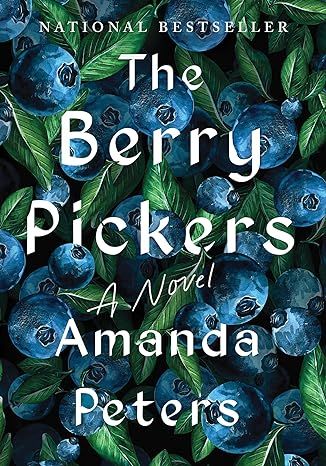
The Berry Pickers: A Novel
4.5
-
14,209
$14.99
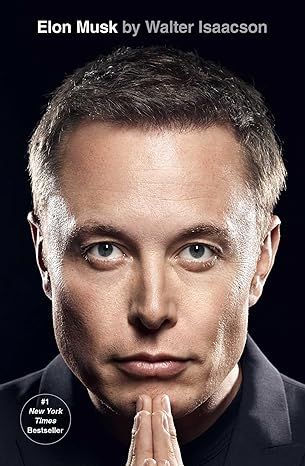
Elon Musk
4.7
-
15,272
$16.99
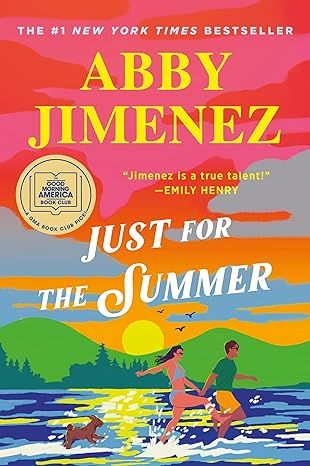
Just for the Summer
4.6
-
19,524
$11.99
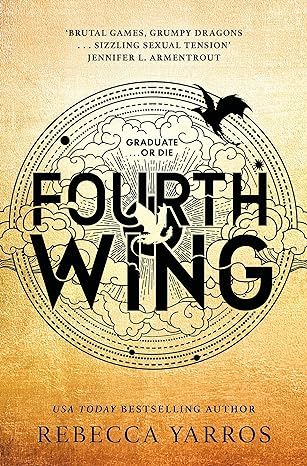
Fourth Wing (International Edition)
4.8
-
206,495
$7.95
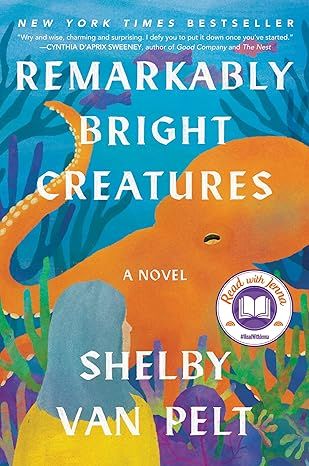
Remarkably Bright Creatures: A Read with Jenna Pick
4.6
-
65,556
$15.80
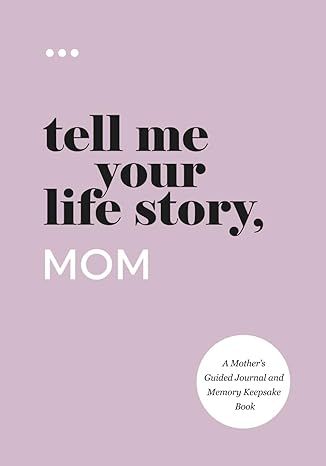
Tell Me Your Life Story, Mom: A Mother’s Guided Journal and Memory Keepsake Book (Tell Me Your Life Story® Series Books)
4.7
-
5,107
$11.24
